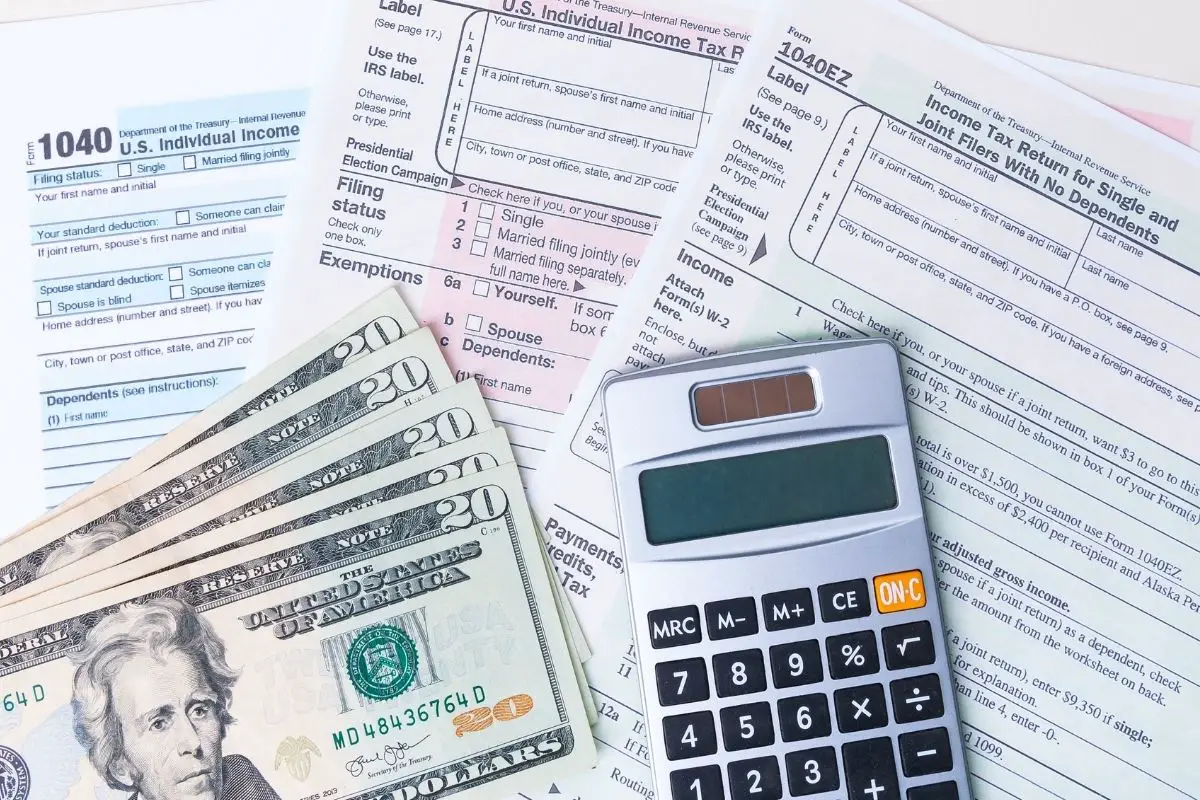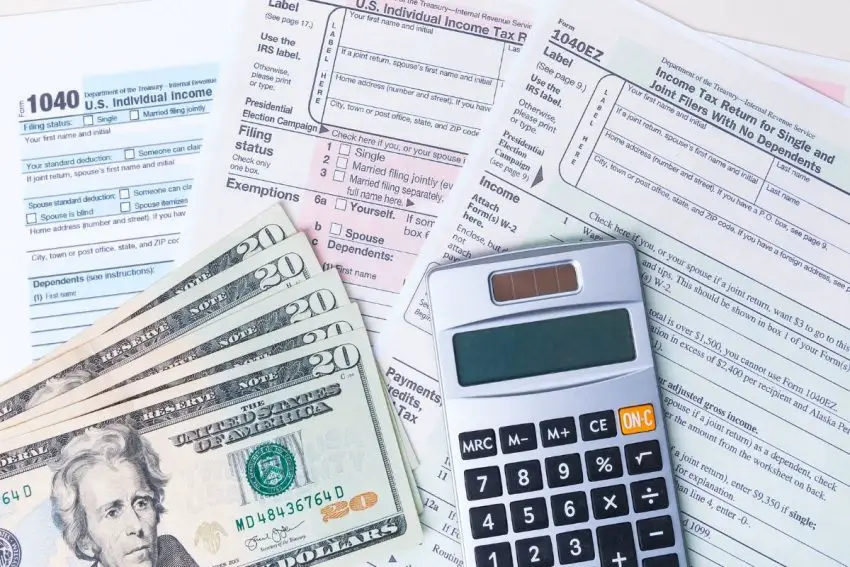Taxes: let’s face it, they’re a headache. Sometimes, life gets in the way, and it can be easy to lose track of what you owe.
Not sure if you owe back taxes to the IRS? Keep reading to find out how to determine what you owe and how to pay it.

Contents
How Will I Know If I Owe The IRS Taxes?
If you don’t pay back your taxes on time, you could find yourself needing to pay steep amounts of penalties and expenses.
Unfortunately, communication with the Internal Revenue Service can be challenging. From unanswered phone calls to processing delays, many taxpayers have struggled to communicate, which has caused serious issues with their tax returns.
Not sure if you owe money to the IRS? There are a few ways to find out. These include:
Mail Notices
If you owe back taxes to the IRS, they may give you a mailed notice. The IRS will never contact you via social media, email, or text to let you know, so be aware of this to avoid scammers.
IRS.gov Tax Account
If you log into your IRS.gov account, you should be able to view any outstanding payments. You can also make your payment online, so if you do owe taxes, you can pay them there and then.
The IRS dashboard should also provide you with a breakdown of your liability by each tax year.
Reviewing Or Filing your Tax Returns
You can also find out if you owe back taxes by simply filing or amending your tax return for the previous year.
Calling The IRS
If none of these options work for you, you can also call the IRS directly for more information. However, reaching the IRS via phone during peak season can be difficult, and you may face extensive wait times.
Unfortunately, it’s not uncommon for the IRS to experience significant backlogs of unprocessed returns. This can make it even more challenging to discover whether you owe taxes.
When the IRS handles extensive backlogs, you may get sent repeat notices (even if you never received the first one), which may leave you feeling confused.
For example, if you receive a notice from the IRS, whether it’s initial contact or a follow-up notice, you should always respond as quickly as possible to avoid paying penalties and interest.
If you think your notice is wrong and you don’t need to pay taxes, you should contact the IRS as soon as possible to avoid paying unnecessary fees.
How Long Can You Owe The IRS Tax Money?
If you do owe the IRS taxes, there’s usually a ten-year period from the date of notification.
This means the IRS will have ten years to complete the collection of back taxes and around three years from the filing date to make you aware of any taxes owed.
This ten-year period begins on the date your tax was assessed and is officially put in the books. Sometimes, this date can be extended in cases of bankruptcy and appeal.
If a tax bill remains unpaid for too long, then the IRS may start collecting back taxes through enforcement.
Will I Get Fined If I Don’t Pay My Taxes?

If you don’t pay your taxes by the due date or extended due date, you may be subject to penalty charges.
The penalty you’ll need to pay is usually a percentage of the taxes you failed to pay back. If this happens, the IRS will send you a notice of the Failure to Pay Penalty.
The Failure to Pay Penalty is calculated based on how long your taxes remain unpaid. However, the Failure to Pay Penalty will never surpass 25% of your unpaid taxes.
The penalty amount may vary depending on whether you failed to pay the amount specified on your tax return or if you failed to pay the tax that wasn’t reported on your return.
Penalty For Not Paying The Amount On Your Tax Return
This penalty will be 0.5% of the unpaid taxes for each month you didn’t pay or for a part of the month where the tax remains unpaid.
This penalty may be reduced to 0.25% if you filed your return on time and have an approved payment plan.
If a failure to pay penalty and failure to file penalty are given in the same month, your failure to file penalty may be reduced by the amount of the failure to pay penalty that was applied in that month.
Penalty For Not Paying What You Didn’t Report On Your Return
If you need to pay tax that you didn’t report or pay on time, the failure to pay penalty will be calculated differently.
You’ll usually be sent a letter outlining the amount due and the due date (which is usually 21 days after the notice is sent, or 10 days if the amount payable exceeds $100,000).
If you don’t pay in time, your failure to pay penalty will be 0.5% of the tax you didn’t pay each month or partial month.
If your return was filed on time, and you have an approved payment plan, this penalty may be reduced to 0.25% per month or partial month.
If you don’t pay what you owe within 10 days of getting your notice (if applicable), the penalty may be increased to 1% per month or partial month).
How To Pay Your Tax Bill
There are a few ways to pay off your tax bill. Even if you can’t afford to pay your taxes in one lump sum, you have options. These are:
- Create An Installment Plan: You can set this up with the IRS and repay your bill monthly.
- Request An Offer: You can also request an offer in compromise. This means you can settle your debt for less than the amount owed.
- Hardship Determination: The IRS levy may be released if it is causing you hardship.
- File And Pay What You Can: Alternatively, you can pay whatever you can afford when you file your return and work with the IRS to set up a payment plan for the outstanding balance.
The Bottom Line
If you owe tax to the IRS, there are plenty of ways to find out. You’ll also have several payment options available to you if you can’t afford to pay the amount in full.
If you receive a notice from the IRS, pay as soon as possible to avoid penalties and interest.





